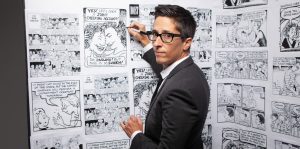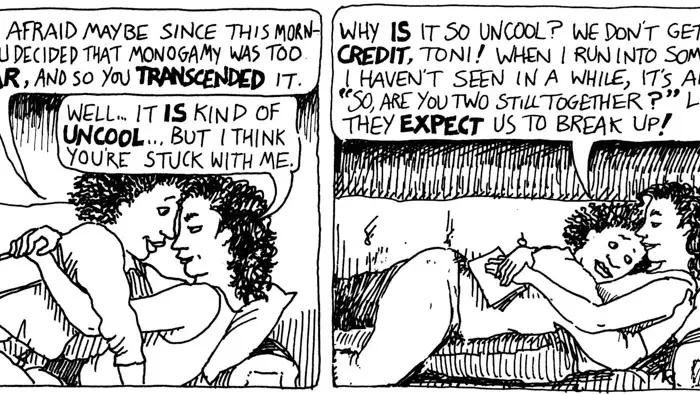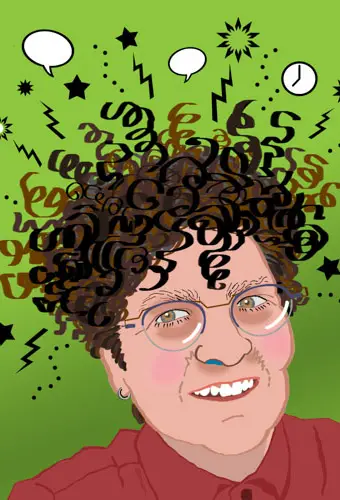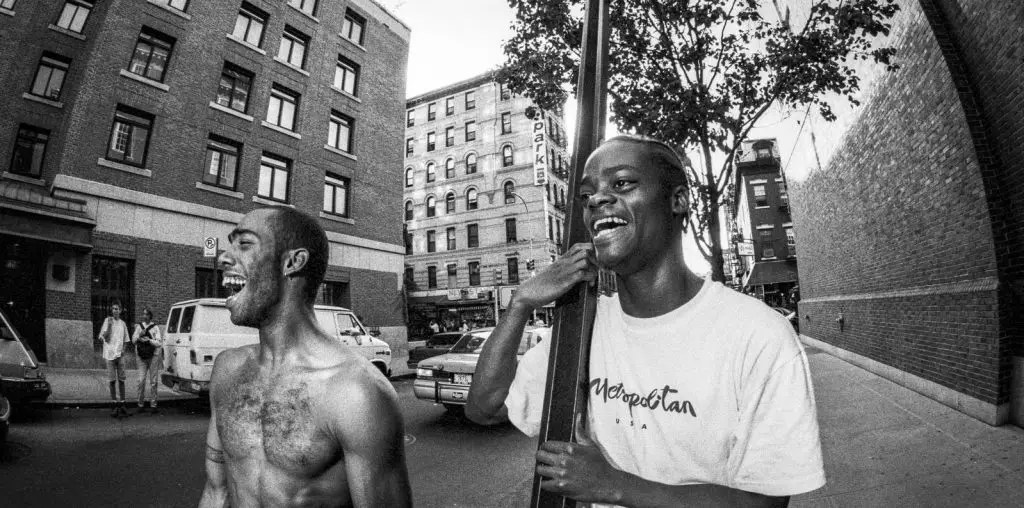
AFI DOCS 2021 REVIEW! You could argue that artists are, for the most part, misunderstood at best. So it is with an even more probing lens that documentarian Vivian Kleimana explores the world of queer comics in the film No Straight Lines: The Rise of Queer Comics. Here we are introduced, not only to the world of underground comics beginning with the ’60s to the present day but the microcosm of queer artists that found a voice and a home. Kleimana carefully educates about the realm she covers while pinpointing how the medium of paneled stories and art gave voice to the unheard.
What was it these artists were doing, and who were they? After meeting several people, the film focuses on the stories of four artists in particular while educating the viewer on the history of the medium. We meet Jennifer Camper, a renegade artist who wears the term D**e as a badge of honor. We learn about mild-mannered Howard Cruse and how his demure southern upbringing led to college and a career as a gay comix artist. Next, we get to know Rupert Kinnard and his college comic, the Brown Bomber, paved the way for his own coming out. Finally, we get to know Alison Bechdel, whose graphic memoir was developed into the Tony-winning musical, Fun Home.

“…how the medium of paneled stories and art gave voice to the unheard.”
By putting ink to blank page, a tattered group of insightful creators breaks supposed barriers set by the prudish Comics Code Authority. The truth is, that wasn’t their principal intent. Sure giving conservative folks a reason to faint was fun, but these artists were striking out against a normative world by sharing their personal truths. At one point, brash Camper says, “If they got mad, they were paying attention, and I was doing my job.” Kruse, an otherwise mild-tempered soul, recalls writing in a statement, “It’s time to take some risks in the service of truth.” These beliefs would carry them through some of the most unbearable times, with the A.I.D.S. epidemic looming on the horizon.
As one with only a cursory knowledge of the world of comics and graphic novels, I grew a profound respect for the artists featured in No Straight Lines. These were not only talented storytellers but ones that had dared to write from their hearts and to pave a way for artists after them. Kleimana does an exceptional job at educating while weaving a coherent narrative for the viewer to follow. I will say that I really wanted more time with the subjects and those they influenced. Peppered throughout are thoughts and comments by current queer comic artists. Had we just a few more minutes with them to see what they have achieved, the doc really would have come full circle.
Subversive, gutting, and ultimately affirming No Straight Lines conveys the desperation and ultimate community a band of supposed reprobates found in the drawn line. Dismiss comics, and graphic novels at your own loss, for within the panels are truths that carry the weight of truth. That or they might just gross you out and make you laugh. Then again, what else are comics supposed to do?
No Straight Lines: The Rise of Queer Comics screened at the 2021 Tribeca Film Festival and the 2021 AFI DOCS.

"…Subversive, gutting, and ultimately affirming..."



